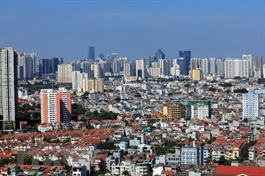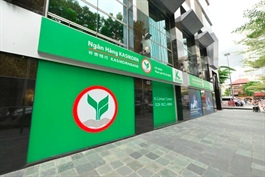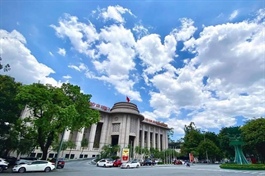Payment deadlines proposed for domestic vehicles
Payment deadlines proposed for domestic vehicles
The Ministry of Finance has asked the government to postpone the payment of special consumption tax on domestically manufactured and assembled automobiles to support businesses that face rising loan rates, low credit limits, and uncertainties in the financial market.

Under the proposal to the government at the end of April, the deadline for the payment of the tax would be no later than November 20. The total amount of the tax extension is about $452-486 million.
According to the Ministry of Finance (MoF), the proposal to unify the extension to mid-November is to avoid accumulating payables to businesses at the end of the year and shun affecting the completion of the state budget revenue estimate in the coming year.
If the policy of extending the excise tax is not implemented, many domestic vehicle manufacturers and assemblers may face difficulties due to rising bank interest rates, low credit limits, and reduced market purchasing power.
This will be the fourth time since 2020 the special consumption tax on domestically manufactured and assembled cars would have been extended if approved. There are a total of 12 automobile manufacturing and assembling enterprises nationwide.
The MoF said that based on the declared data of these enterprises, the output and the amount of excise tax on such cars has been gradually decreasing in recent months.
According to the General Statistics Office, in the first four months of 2023, the index of industrial production decreased by 1.8 per cent on year due to the slow recovery of the world economy along with tight monetary policy in many countries, reducing consumption demand of major trading partners, and leading to a decrease in production orders and in export turnover.
Sales of key industrial products in the period decreased compared to the same period last year, such as automobiles down 19.3 per cent, and mobile phones down 13 per cent on-year.
Domestic automobile manufacturers and assemblers are concerned that the car market is at risk of losing over 35 per cent of sales volume in the next five years, equivalent to 1.8 million vehicles. Along with that, the long-term goal of exporting nearly 90,000 vehicles and reaching $10 billion in export of spare parts by 2035 will be difficult to achieve without timely promotion policies in the short and medium term.
According to automotive expert Nguyen Vinh Nam, this extension of excise tax does not affect the selling price of cars. “The continuation of the extension of excise tax payment will help domestic automobile enterprises solve immediate financial problems and take advantage of this financial source to reinvest in production lines to assemble cars in the near future,” said Nam.
Earlier this year, the MoF insisted that it was not possible to reduce the registration fee for domestically manufactured and assembled cars by half.
Last week, the government proposed a draft on VAT reduction that could get approval at the National Assembly’s upcoming session in May.


























